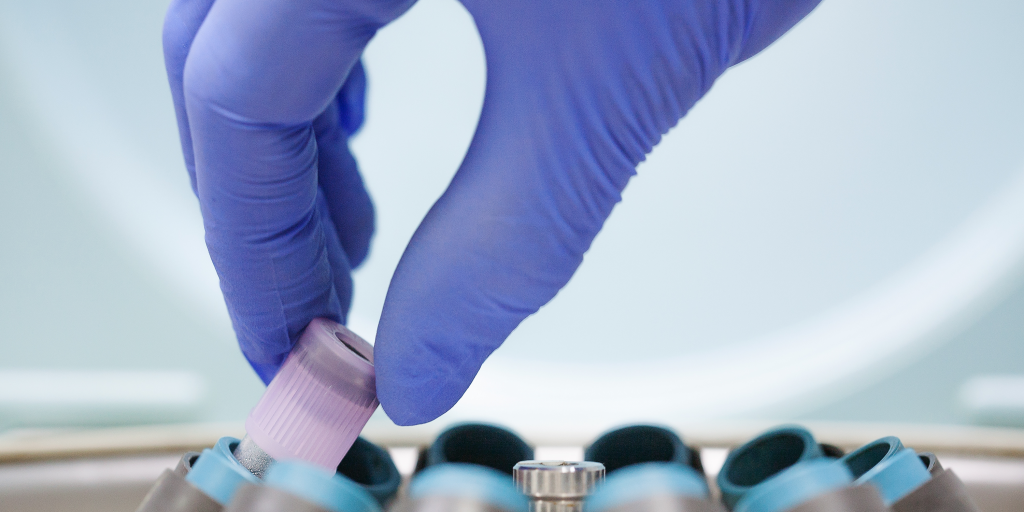Sexually transmitted infections, commonly known as STIs, are infections that are spread through sexual contact. There are several different varieties of STDs, each with unique symptoms and caused by specific viruses or bacterial strains. Many people with STIs and HIV do not show symptoms, making it essential to get tested regularly to ensure early detection and treatment. Early detection of HIV improves the effectiveness of treatment and may even allow both you and your partner to live long and healthy lives by suppressing the virus.

In this blog, we will discuss the importance of getting tested for STIs and why it is essential for maintaining good sexual health.
Why Is it Essential To Undergo Regular STI Testing?
Early Detection
Taking care of your sexual health may seem like a hassle, but it is crucial for both you and your partner. Regular testing ensures that any STIs can be caught early, decreasing the risk of spreading them to others. By performing routine STI testing and utilizing barrier techniques like condoms or dental dams, we can stop the spread of STIs. Moreover, the more frequently you get tested, the simpler it will be to determine from whom you might have acquired an STI, and the fewer people you will need to inform if you test positive.

Reduced risk of transmission
Anyone who is sexually active is at risk of contracting an STI, regardless of age, orientation, marital status, or the number of partners they have. The most prevalent STIs, including chlamydia and gonorrhea, frequently have no symptoms, so you and your partner may be infected without being aware of it. It is crucial to get tested after every sexual encounter with a new partner and roughly once a year if you are in a committed relationship.

Peace of Mind
People sometimes avoid being tested because they fear learning something scary, but not knowing whether or not you have an STI may make you feel even more anxious. You can take comfort in knowing you are STI-free if you get tested, and the results are negative. Additionally, if the test yields a positive result, at least you’ll know and be able to promptly resolve the issue.

Condoms do not provide 100% protection
Condoms are a convenient way to stop the spread of STIs and are a great barrier strategy. However, it is crucial to keep in mind that mistakes can occur, and condoms do not cover all parts of the body. Some STIs like Herpes or HPV can spread through close skin-to-skin contact as well. Getting routinely tested even while you are using condoms is essentially the greatest approach to protect both you and others from STIs.
Conclusion
In conclusion, getting tested for STIs is crucial for maintaining good sexual health. The majority of STIs are relatively readily cured with medications, and those that cannot be treated can still be managed quite well. For instance, HIV can be controlled using antiviral drugs (ART) that stop it from being transmitted through intercourse

If any STI is present in a person’s body, then the risk of getting another STI is higher. If left untreated, STIs can lead to long-term health complications like infertility. Early detection and treatment can help prevent long-term health issues, and it decreases the risk of spreading the infection to others. Regular testing, reduced risk of transmission, peace of mind, and understanding that condoms are not enough are all reasons why getting tested is vital.
A urine sample, blood sample, and/or a swab of the vagina, mouth, or anus are typically required for an STI test. You can get tested at a private clinic or a sexual health center. Some places offer home testing kits through online STI testing. Remember, taking care of your sexual health is taking care of yourself and those around you.
You can get tested for STIs at a DrSafeHands’ Testing Center near you or you can book an online STI test here STI testing near me
FAQS
Q – How long does it take for an STI to show symptoms?
A – It varies by STI, but some can show symptoms within a few days while others can take weeks or even months. Some STIs do not show any symptoms at all.
Q – Can I get an STI like gonorrhea or chlamydia by hugging or touching an infected person?
A – No, these types of STIs are typically transmitted through sexual contact, including vaginal, anal, and oral sex.
Q – Are STIs hereditary?
A – No, STIs are not passed down from parent to child genetically, but a pregnant woman with an STI can pass it to her baby during childbirth.
Disclaimer: This website may contain general information relating to various medical conditions and their treatment. Such information is provided for informational purposes only and is not meant to be a substitute for the advice provided by a doctor or other qualified healthcare professionals. Readers should not use the information contained herein for diagnosing a health or fitness problem or disease. Readers should always consult with a doctor or other healthcare professional for medical advice or information about diagnosis and treatment.


Leave a Reply